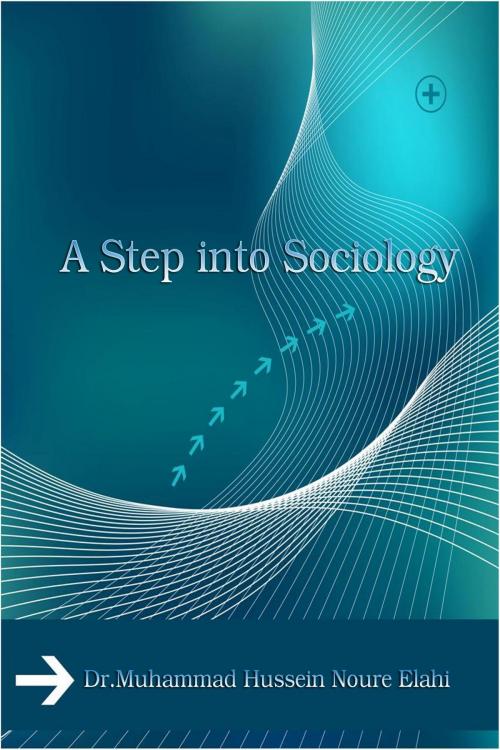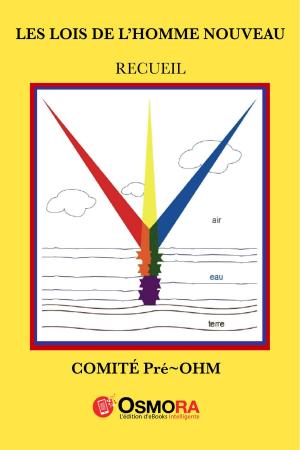A Step into Sociology
Nonfiction, Social & Cultural Studies, Social Science, Sociology, Reference & Language, Reference| Author: | Muhammad Hussein Noure Elahi | ISBN: | 9782765928041 |
| Publisher: | Osmora Inc. | Publication: | April 11, 2016 |
| Imprint: | Osmora Inc. | Language: | English |
| Author: | Muhammad Hussein Noure Elahi |
| ISBN: | 9782765928041 |
| Publisher: | Osmora Inc. |
| Publication: | April 11, 2016 |
| Imprint: | Osmora Inc. |
| Language: | English |
Sociology is the study of human social relationships and institutions. Sociology’s subject matter is diverse, ranging from crime to religion, from the family to the state, from the divisions of race and social class to the shared beliefs of a common culture, and from social stability to radical change in whole societies. Unifying the study of these diverse subjects of study is sociology’s purpose of understanding how human action and consciousness both shape and are shaped by surrounding cultural and social structures.
Sociology is an exciting and illuminating field of study that analyzes and explains important matters in our personal lives, our communities, and the world. At the personal level, sociology investigates the social causes and consequences of such things as romantic love, racial and gender identity, family conflict, deviant behavior, aging, and religious faith. At the societal level, sociology examines and explains matters like crime and law, poverty and wealth, prejudice and discrimination, schools and education, business firms, urban community, and social movements. At the global level, sociology studies such phenomena as population growth and migration, war and peace, and economic development.
Sociologists emphasize the careful gathering and analysis of evidence about social life to develop and enrich our understanding of key social processes. The research methods sociologists use are varied. Sociologists observe the everyday life of groups, conduct large-scale surveys, interpret historical documents, analyze census data, study video-taped interactions, interview participants of groups, and conduct laboratory experiments. The research methods and theories of sociology yield powerful insights into the social processes shaping human lives and social problems and prospects in the contemporary world. By better understanding those social processes, we also come to understand more clearly the forces shaping the personal experiences and outcomes of our own lives. The ability to see and understand this connection between broad social forces and personal experiences — what C. Wright Mills called “the sociological imagination” — is extremely valuable academic preparation for living effective and rewarding personal and professional lives in a changing and complex society.
Students who have been well trained in sociology know how to think critically about human social life, and how to ask important research questions. They know how to design good social research projects, carefully collect and analyze empirical data, and formulate and present their research findings. Students trained in sociology also know how to help others understand the way the social world works and how it might be changed for the better. Most generally, they have learned how to think, evaluate, and communicate clearly, creatively, and effectively. These are all abilities of tremendous value in a wide variety of vocational callings and professions.
The present book offers a distinctive and enlightening way of seeing and understanding the social world in which we live and which shapes our lives. Sociology looks beyond normal, taken-for-granted views of reality, to provide deeper, more illuminating and challenging understandings of social life. Through its particular analytical perspective, social theories, and research methods, this unique book is a discipline that expands our awareness and analysis of the human social relationships, cultures, and institutions that profoundly shape both our lives and human history.
Sociology is the study of human social relationships and institutions. Sociology’s subject matter is diverse, ranging from crime to religion, from the family to the state, from the divisions of race and social class to the shared beliefs of a common culture, and from social stability to radical change in whole societies. Unifying the study of these diverse subjects of study is sociology’s purpose of understanding how human action and consciousness both shape and are shaped by surrounding cultural and social structures.
Sociology is an exciting and illuminating field of study that analyzes and explains important matters in our personal lives, our communities, and the world. At the personal level, sociology investigates the social causes and consequences of such things as romantic love, racial and gender identity, family conflict, deviant behavior, aging, and religious faith. At the societal level, sociology examines and explains matters like crime and law, poverty and wealth, prejudice and discrimination, schools and education, business firms, urban community, and social movements. At the global level, sociology studies such phenomena as population growth and migration, war and peace, and economic development.
Sociologists emphasize the careful gathering and analysis of evidence about social life to develop and enrich our understanding of key social processes. The research methods sociologists use are varied. Sociologists observe the everyday life of groups, conduct large-scale surveys, interpret historical documents, analyze census data, study video-taped interactions, interview participants of groups, and conduct laboratory experiments. The research methods and theories of sociology yield powerful insights into the social processes shaping human lives and social problems and prospects in the contemporary world. By better understanding those social processes, we also come to understand more clearly the forces shaping the personal experiences and outcomes of our own lives. The ability to see and understand this connection between broad social forces and personal experiences — what C. Wright Mills called “the sociological imagination” — is extremely valuable academic preparation for living effective and rewarding personal and professional lives in a changing and complex society.
Students who have been well trained in sociology know how to think critically about human social life, and how to ask important research questions. They know how to design good social research projects, carefully collect and analyze empirical data, and formulate and present their research findings. Students trained in sociology also know how to help others understand the way the social world works and how it might be changed for the better. Most generally, they have learned how to think, evaluate, and communicate clearly, creatively, and effectively. These are all abilities of tremendous value in a wide variety of vocational callings and professions.
The present book offers a distinctive and enlightening way of seeing and understanding the social world in which we live and which shapes our lives. Sociology looks beyond normal, taken-for-granted views of reality, to provide deeper, more illuminating and challenging understandings of social life. Through its particular analytical perspective, social theories, and research methods, this unique book is a discipline that expands our awareness and analysis of the human social relationships, cultures, and institutions that profoundly shape both our lives and human history.















